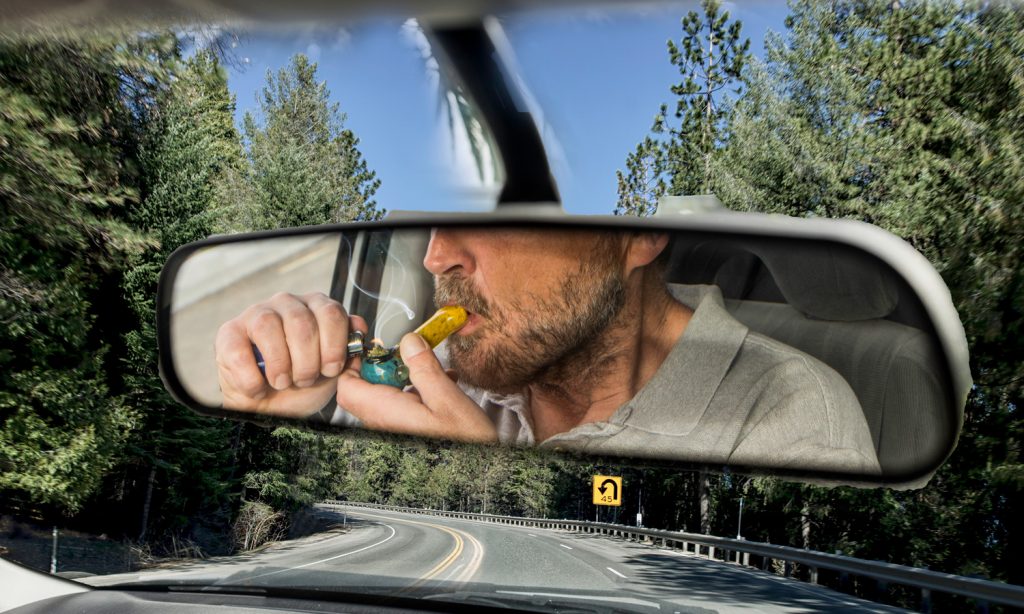
According to a new study, high while driving affects:
The effect of cannabis on drivers is not fully understood. While THC use affects motorists, researchers and law enforcement are unaware of how much cannabis needs to be present in a person’s body for impairment to occur. They also don’t realize how long cannabis affects a person while driving.
A new study has narrowed down the timeframe of cannabis impairment, finding that people are typically able to drive again four hours after using cannabis.
RELATED: Study: Consuming CBD-rich cannabis has ‘no significant effect’ on driving
Photo by Jed Villejo via Unsplash
The study, published in the JAMA Psychiatry Journal, was conducted by researchers at the University of California. They studied 191 regular cannabis users and conducted simulated driving tests on them and found that cannabis use significantly impaired their ability to drive.
The participants were split into two groups: one taking a placebo and another taking cannabis with either 5.9% or 13.4% THC. Researchers measured impairment at various points in the study.
Overall, the results showed that participants who consumed THC performed worse on their Composite Drive Scores (CDS), which attributed them to a variety of skills such as following cars at different speeds, responding to tasks with divided attention, and tested more.
The results are interesting on closer inspection. While all cannabis users were reluctant to drive immediately after using cannabis, 69% of them reported being ready to drive an hour and a half after using cannabis. Their CDS levels were low, showing that even though they thought they were ready to drive, their bodies remained impaired.
“Although users in the THC group felt impaired and were reluctant to drive after 30 minutes, after 1 hour to 30 minutes they believed the impairment was diminishing and were more willing to drive. This did not improve significantly despite their performance past the 30-minute point,” said study lead author Thomas Marcotte.
Finally, the researchers found that at the 4-hour mark, there was no difference between the placebo group and the cannabis group.
RELATED: Scientists are developing on-site tests for cannabis use similar to a breathalyzer
 Photo by JasonDoiy/Getty Images
Photo by JasonDoiy/Getty Images
Another interesting discovery the study made was the lack of correlation between blood levels and driving distance, something we’ve written about in the past and that’s why a working cannabis breathalyzer will likely never be made. It seems that cannabis is a highly individual experience; While someone has high blood levels of cannabis, they may not be as affected as someone who has low blood levels of THC and may be less experienced with the drug.
This study provides a deeper understanding of how cannabis works in our systems and how it affects drivers differently than alcohol, which is important to understand as cannabis is becoming legal in all states.

Post a comment: